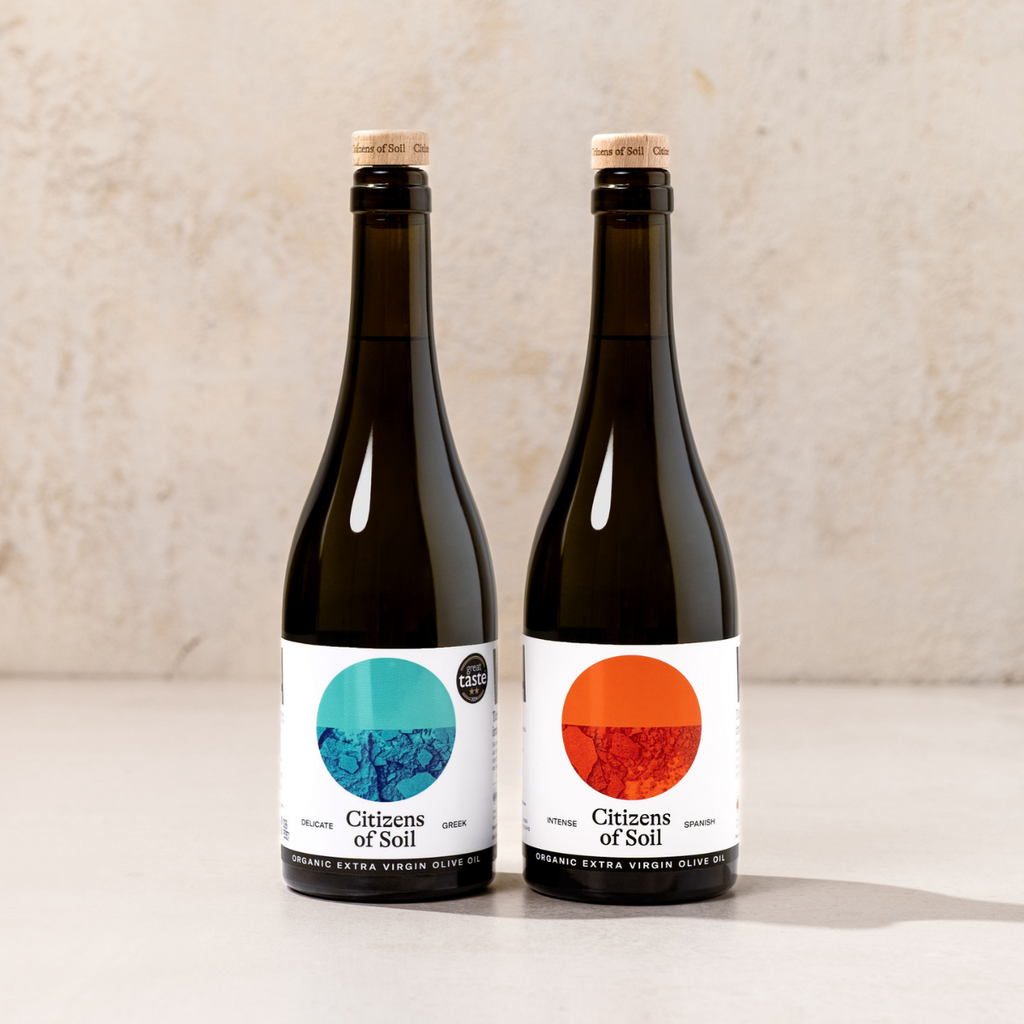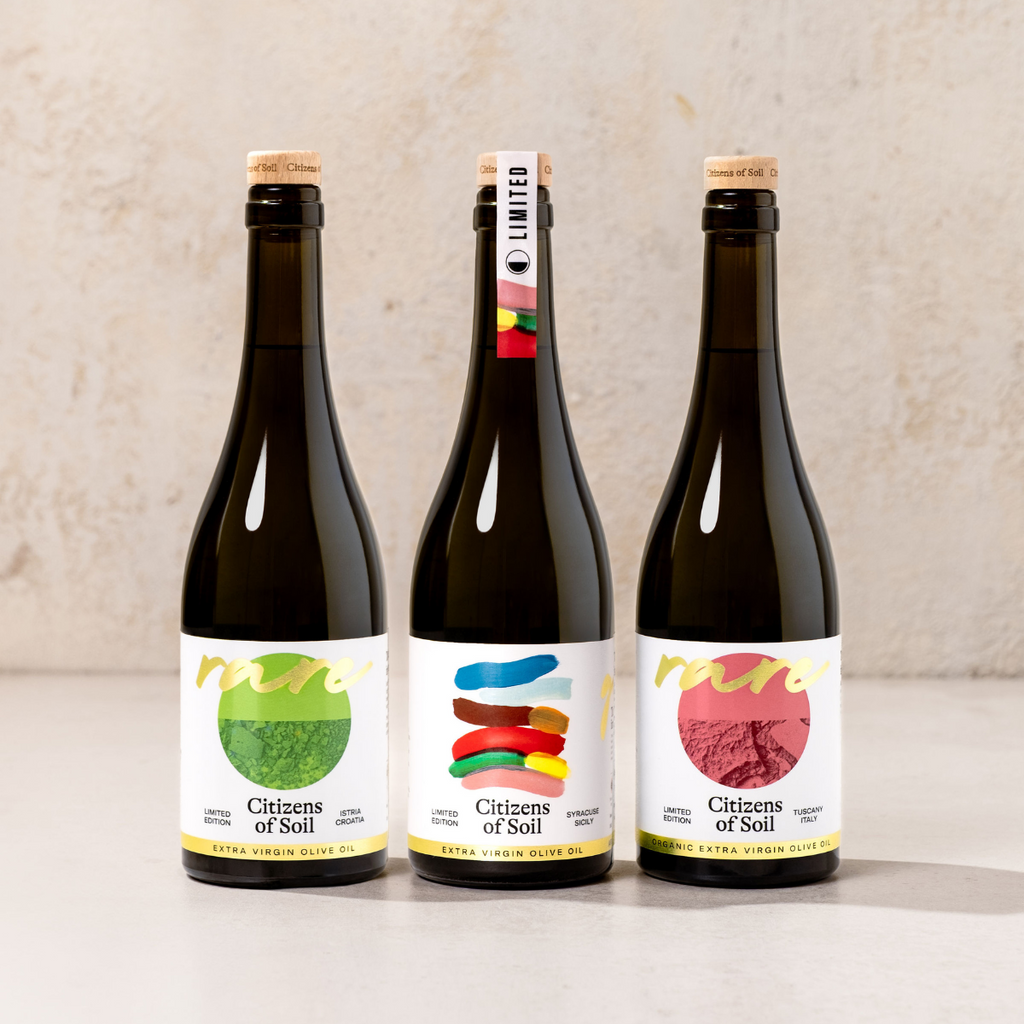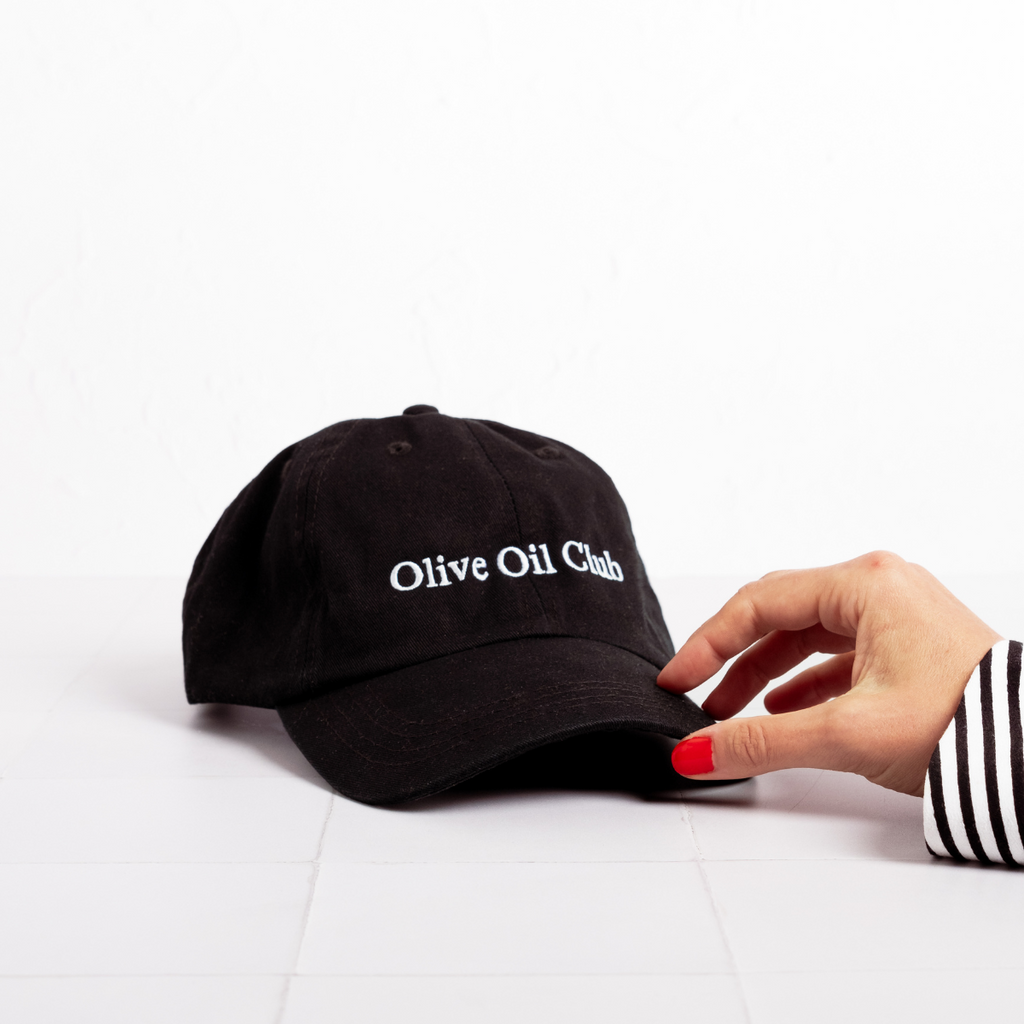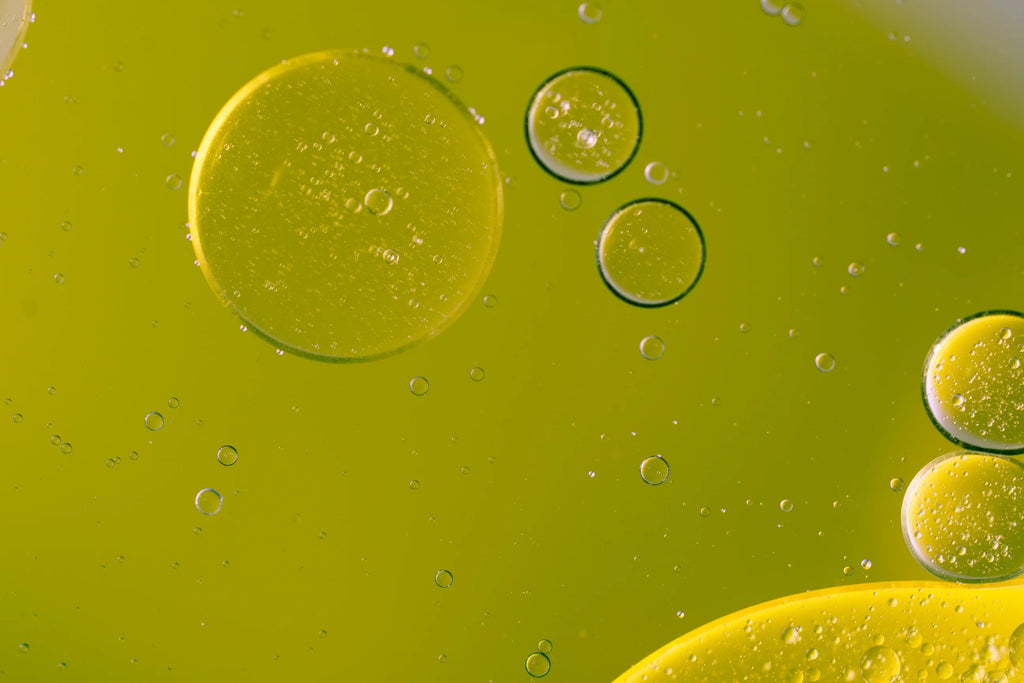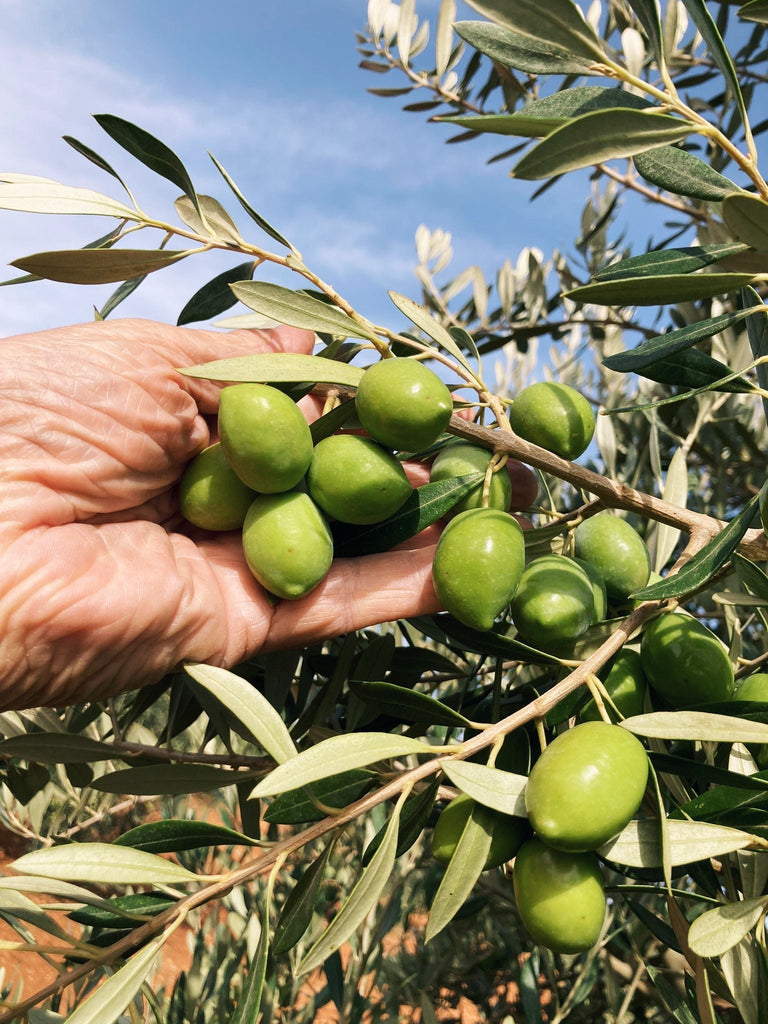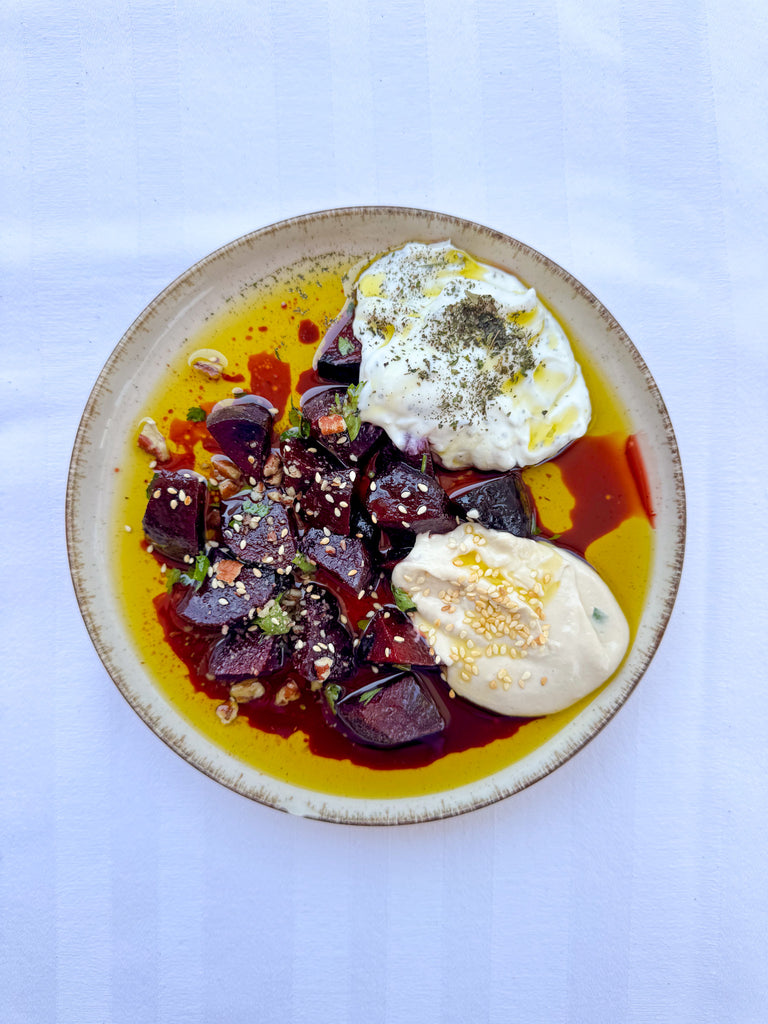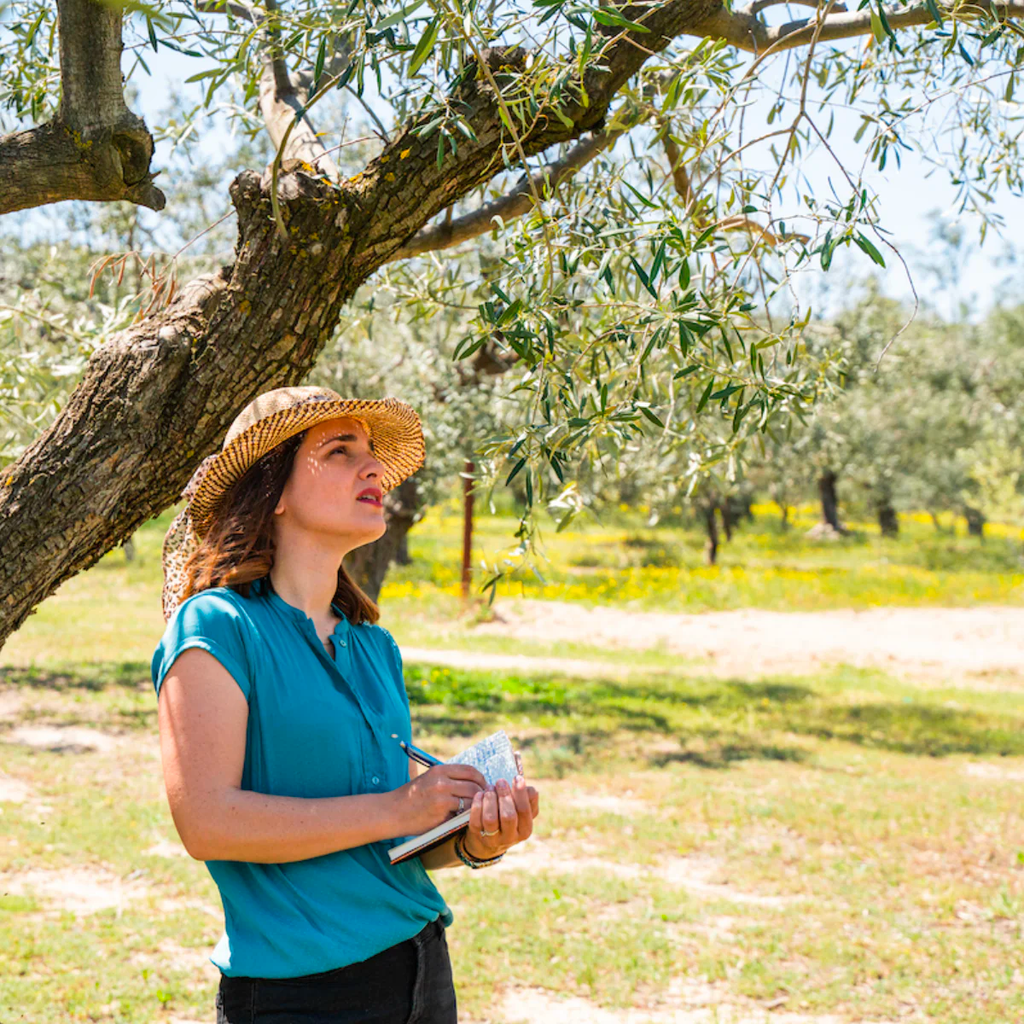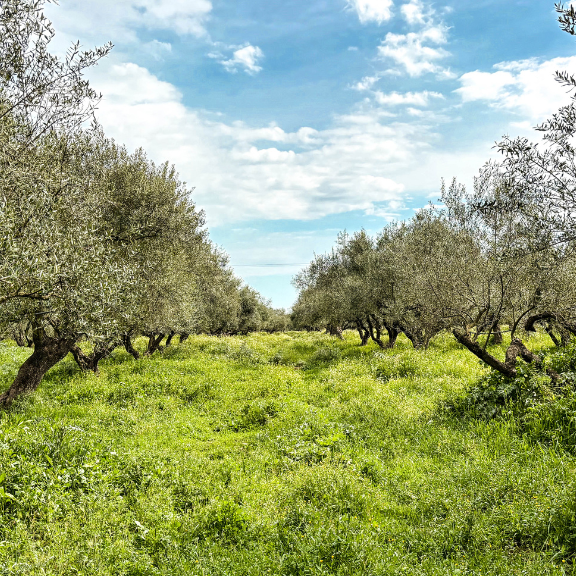Extra virgin olive oil: Is bitter better?
Love it or hate it, this controversial flavour is actually considered a positive attribute in extra virgin olive oil. While some people confuse the bitterness in EVOO as something bad, it's actually something that experts and olive oil lovers alike look out for and value.
This article was written by Alexis Kerner, a leading international olive oil expert & environmental scientist.
Coffee, beer, and dark chocolate are all foods we may have not enjoyed the first time we tasted them but rather grew to love as adults. Extra virgin olive oil is no exception. It can be full of sensations, flavours, and aromas that can evoke feelings and emotions. One is bitterness.

When it comes to olive oil, bitter is better.
The bitterness in extra virgin olive oil is an indicator of the presence of specific phenols and product freshness. Phenols are chemical compounds that naturally occur in olive fruit and offer a myriad of health benefits. There are over 30 different phenols in olive oil. However, oleuropein is the one that presents itself as bitterness.
Here are 5 ways this showstopper has shown to help us stay healthy.
1. Acts as a potent antioxidant.
As our body goes about its normal business of everyday life, chemical reactions are occurring and cells are constantly being damaged as well as restored. As a result of these processes, free radicals are being produced that can lead to oxidative stress in our body and cause cell damage. We are often told to eat lots of fresh fruits and vegetables to rid our bodies of this by-product. Oleuropein along with other phenols present in olive oil has strong antioxidant properties. By adding extra virgin olive oil to these foods raw or using them to cook we add an extra boost to our antioxidant intake.
2. Keeps our heart healthy.
The American Heart Association has recommended the use of olive oil for good reason. Obviously it is a healthy fat however it’s the oleuropein content, associated with bitterness, also at play. Oleuropein acts as a vasodilator, helps to flush away aggregating platelets and has anti-inflammatory and antioxidant properties. All of these keep our heart working in tiptop shape.
3. Oleuropein in autophagy and apoptosis—reducing cancer risk.
Indeed autophagy and apoptosis sound complicated. However, simply put they are your body’s ability to restore cells by reusing healthy cell parts as well as its ability to destroy ones that are no longer viable. Oleuropein is akin to a very good mechanic that can get your auto back in no time, at half the cost because they were able to take advantage of used parts on hand. However, the mechanic also scrapped the old carburettor because it was about to give you trouble. By its ability to repair cells that are damaged and possibly mutating, this phenol helps to prevent the formation of and reduce the aggressiveness of certain cancers.
4. Reduces neurological diseases like dementia.
Oleuropein is showing to have a neuroprotective role by clearing out extracellular amyloid plaques, reducing inflammation and increasing blood flow in the brain. All one needs to do is do a quick Google search to see all of the promising research on the use of extra virgin olive oil and oleuropein to slow the progression of Mild Cognitive Impairment and Alzheimer’s disease.
5. Metabolic syndrome and diabetes.
Although we always need to be careful to label extra virgin olive oil as a cure-all, studies are showing the potential of oleuropein to help control metabolic disorders like type 2 diabetes. In trials, this potent phenol has shown its ability to increase insulin sensitivity, facilitate transport of glucose, aid in insulin secretion and improve glucose tolerance.

Five facts our farmers understand:
High-quality producers understand what makes their product bitter and will use methods to elevate or reduce the bitterness in order to have a well-balanced olive oil.

1. Variety
First and foremost the variety will dictate its phenolic potential, it is not the same to cultivate an Arbequina variety than a Picual. Each possesses intrinsic
2. Earlier harvest
Upon biting into a very green plum we quickly find out it is more bitter (and hence higher in phenolic content) than a red ripe one. Equally olives are more bitter when they are green than when they are dark purple in colour. By harvesting early, a farmer can give a boost to the olive’s phenolic content. Generally speaking an earlier harvest can compensate for some of the variety’s natural lack of bitterness. This doesn't guarantee a great oil (and some varieties and regions will be downright unpalatable when it's too early), but it's an opportunity to make a batch with greener notes.
3. Terroir
A French term to refer to environmental aspects that play into a wine’s final taste profile also applies to extra virgin olive oils. Higher altitudes, soil types, rainfall, and temperature all are factors that shape an olive oil’s final characteristics. Lower rainfall and higher altitudes are two top situations that increase the trait.
4. Master millers
Are just that, *masters* in their profession. They are well aware that as long as they have fresh, unblemished fruit the possibility for a high quality extra virgin olive oil is in their hands. Master millers will craft a well balance, fragrant oil, taking all of the intrinsic values of the olive fruit and transfer them all to the product. Bitterness that is too high for palatability can be adjusted during this process.
5. Good storage management
Storage and freshness are essential to maintaining the bitterness of an olive oil. Extra virgin olive oil is simply put the fruit juice extracted from an olive. To find the freshest product, consumers can start by searching for a product that is clearly labelled and stored in a dark bottle, tin or bag. The label should indicate the best before date and harvest date. However, the real test is in its taste. As olive oil ages and degrades over time, the bitterness will start to mellow. Although not all high quality olive oils will have a high bitterness due to each one’s unique profile, its presence can indicate that the oil is fresh.
Elevate and contrast flavour with *bitter* extra virgin olive oil.
Use the bitterness to your culinary advantage. Bitter olive oils can be used to accentuate the bitterness of a dish or contrast its sweetness. Try it these three ways:
1. Grilled summer vegetables
Perhaps the more obvious choice is in vinaigrettes but a good bitter extra virgin olive oil is also often very green in flavour and can offer a lot of flavour lift on summer vegetables like courgettes, tomatoes and green beans. Use it to finish any veggie dish.
2. Orange salad
Throughout the Mediterranean you will find orange salads that use bitter olive oils to set off the fruit´s sweetness. These salads can be salty or sweet combining salted cod, fennel, black olives and sweet onions.
3. Chocolate desserts
Bitter high phenolic oils can also elevate the bitterness of dark chocolate desserts, adding a very special richness to mousses, cakes and ice cream. Bitter olive oil in a rich chocolate cake is sure to stir the senses.
In short: Extra virgin olive oil—it's best bitter.
Author — Alexis Kerner
Alexis is an environmental scientist and olive oil expert who has lived in Seville, Spain for over two decades. She holds a degree in environmental studies from Connecticut College and her title as Expert Olive Oil Taster from the University of Jaén and the International Olive Council. Since 2014 she is the owner of The Olive Oil Workshop, through which she offers educational tastings in Seville as well as consultation to producers and buyers. She I also served as judge in numerous international olive oil competitions.
Find her at: Theoliveoilworkshop.com

